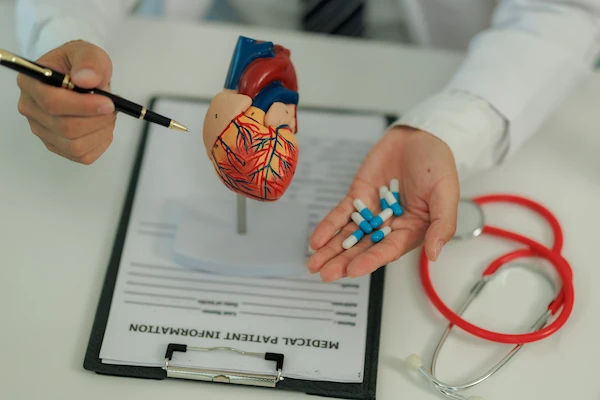- Female
- 31 Years
- 29/01/2025
I'm a bit confused about the difference between normal chest pain and angina pain. Is angina pain similar to what happens during a heart attack, but it goes away in like 3 or 4 minutes? And should I be worried if I feel pins and needles in my chest that only last for less than a minute?
Answered by 1 Apollo Doctors
Chest pain can have various causes, including musculoskeletal issues, gastrointestinal problems, or cardiac conditions like angina. Angina pain is typically described as a pressure, squeezing, or tightness in the chest that may radiate to the arms, neck, jaw, or back. It is often triggered by physical exertion or emotional stress and usually subsides with rest or medication like Nitroglycerin. Angina pain is not usually as severe or prolonged as a heart attack, which typically lasts longer than 3 to 4 minutes and may be associated with other symptoms like shortness of breath, sweating, nausea, or lightheadedness. Pins and needles sensation lasting under 1 minute is usually not a cause for concern and can be due to temporary nerve compression or poor circulation. However, if you experience persistent or recurrent pins and needles, especially associated with other symptoms like weakness, numbness, or difficulty speaking, it is important to seek medical evaluation to rule out more serious conditions like a transient ischemic attack (TIA) or peripheral neuropathy.
Dr. Chandra Suggests...
Consult a Cardiologist
Answered 04/07/2025
0
0

More Cardiology Health Queries
View allCan you explain how to tell the difference between left arm pain caused by cervical issues and pain that's related to heart problems? I'm experiencing this dull, minor pain in my left arm that comes and goes, but I don't have any other symptoms like chest pain or lightheadedness. Could you give me some insight on this?
This type of pain may be accompanied by neck pain or stiffness. To manage this, you can take over-the-counter pain relievers like acetaminophen or ibuprofen. Additionally, you can apply a topical pain relief cream like Voltaren Gel on the affected area. If the pain persists, consult a doctor for further evaluation. Left arm pain due to heart issues, on the other hand, is often a symptom of a heart attack or angina. Since you mentioned no chest pain or lightheadedness, it is less likely to be related to the heart. However, if you have concerns about your heart health, you can take a low dose of aspirin (81mg) as a precaution and seek medical attention immediately if the pain worsens or is accompanied by other symptoms like chest discomfort, shortness of breath, or nausea.
Answered by 1 Apollo Doctors
I'm wondering if a blood pressure reading of 9354 is considered low? I've been feeling some weakness and dizziness at times, and I'm not sure if it's related. How would one diagnose low blood pressure?
Visit your doctor for evaluation and appropriate management
Answered by 1 Apollo Doctors
I'm pretty worried right now because my heart rate is 92102 per minute while I'm just laying down. It's making me feel really nervous and even more sick. Plus, my left hand and the left side of my back (not right in the middle) are aching. Could this be some kind of warning sign?
Your symptoms of increased heart rate, nervousness, left hand ache, and left side back pain could be due to anxiety or stress. However, it is important to rule out any underlying heart condition. I recommend you take a tablet of propranolol 10mg to help lower your heart rate and reduce anxiety. You can take it up to three times a day as needed. Additionally, you can take acetaminophen 500mg for the left hand and back pain. Make sure to rest and try some relaxation techniques to help alleviate your symptoms.
Answered by 1 Apollo Doctors
Disclaimer: Answers on Apollo 247 are not intended to replace your doctor advice. Always seek help of a professional doctor in case of an medical emergency or ailment.





